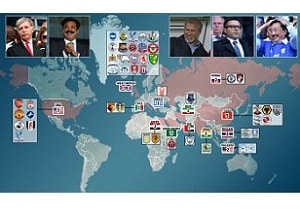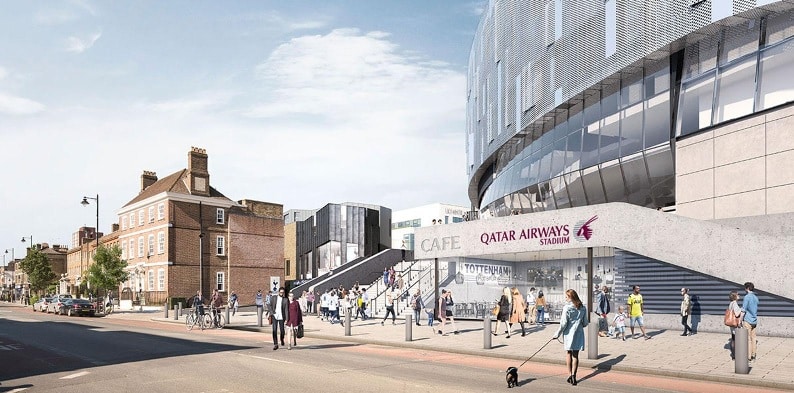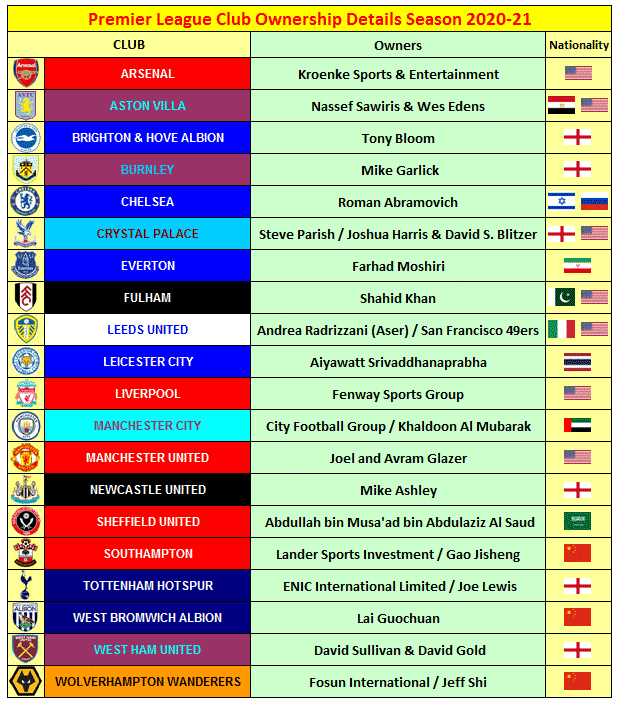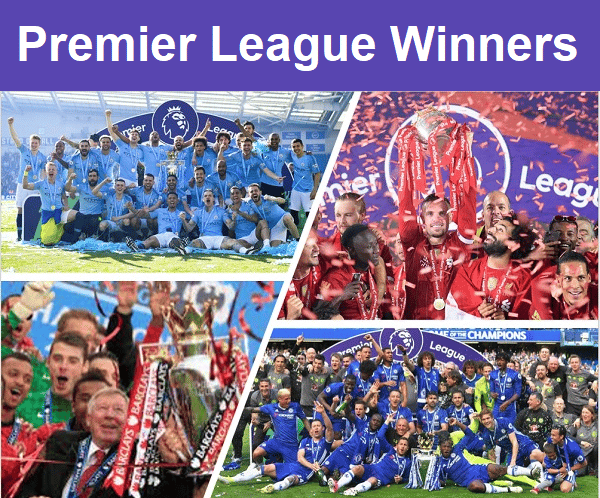
Article: Foreign Ownership of Premier League Clubs By Brian Beard
Home ⇒ Articles
By Brian Beard | 30th APR 2020
Article: Foreign Ownership of Premier League Clubs
So Newcastle United becomes the latest member of the `cash-cow` herd that is the Premier League to attract foreign envy, or to be politically correct, overseas interest. You have to feel for Steve Bruce, who is one of those guys who is a better manager than he gets credit for, learning via the media that Mauricio Pochettino was a shoe-horn for his job.
But its not been plain sailing for prospective purchaser Crown Prince Mohammed Bin Salman who has rattled the cage of everyone from Amnesty International to local supporters` clubs who want intense scrutiny before Mike Ashley offloads his club.
It’s also no secret that Qatar want to raise their profile ahead of the 2022 FIFA World Cup Finals by partnering with a Premier League Club. Tottenham Hotspur were in the frame recently but it now looks like Amazon may well go into business with Spurs. Meanwhile, Leeds United who looked a good bet for promotion to the Premier League, may well be Qatar’s best option.

At present seven of the twenty Premier League clubs are owned by UK based individuals or companies. Included in that total is Crystal Palace who have a complicated ownership structure that is extends from the United States to the UK although Steve Parish is usually headlined as the figurehead. That leaves 13 clubs under foreign control but, of course, if Bin Salman gets his hands on St James` Park et al, the score will be 14-6, or 70%, in favour of off-shore ownership.
It was Roman Abramovich who changed the landscape of football, here and across the globe, when he bought Chelsea in 2003. His £10.2 billion pound fortune is based on oil, steel and mining in his native Russia where his good friend Vladimir Putin is President. He has ploughed a fortune into Stamford Bridge in the past 17 years, success laden years it must be said, but in fairness his stated aim to make Chelsea a self-sustaining football club was achieved a while back.
ADVERTISEMENT
That was also the intention of Manchester City`s purchasers, in 2008. The owners are the Mansour family from Abu Dahbi with Sheikh Mansour heading the Etihad club. They are by far the richest owners in the Premier League with a combined family wealth, and you won`t see this word too often, rumoured to be ONE TRILLION DOLLARS. When you convert that to sterling, £ 785 billion, it doesn`t seem so much!
At the other end of the Premier League `Rich List` is Burnley owner Mike Garlick whose business model that helped the club into the top-flight and, most importantly remain there, is the envy of other clubs, far and near. Mike, who began his business career in a small London office in 1989, is one of the least wealthy Premier League owners. There`s no real way to say that a man worth £50 million is `poor`.
Brighton owner Tony Bloom is `home-grown`, Brighton born and bred. He is a professional poker player and proved it was no gamble bankrolling `his` club`s climb into the top-flight.
Just along the coast neighbours AFC Bournemouth went `foreign` when Russian businessman Max Demin became co-owner in 2011 when The Cherries were in League 1. Although he sold a 25% share of his holding in 2015, the year Bournemouth were promoted to the top flight, he remains the majority shareholder.
Arsenal owner is Stan Kroenke and he has a 67% majority shareholding which has hung onto despite many attempts to buy him out by Alisher Usmanov. Ironically Kroenke turned the tables and made a successful bid, worth £500 million, to buy Usmanov out in 2018.
Manchester United are also under American ownership but the move by the Glazer family was far more controversial than anything at the Emirates, a tenure that has been turbulent to say the least, despite their $4.7 billion collective worth.
Down the East Lancs Road the Fenway Group have had what might be termed `Klopp, Klopp and away` success since they bought Liverpool. John W Henry and Tom Werner have brought a steady stream of trophies in since paying £300 million in 2010 for a club that is now worth £2.7 billion, some investment showing an 800% return.
China came quite late to top flight investment with current clubs, Wolverhampton Wanderers and near neighbours Aston Villa. At one time both were owned by citizens of that nation although Villa was sold to Egyptian businessman Nassef Sawiris in 2018. The two clubs have experienced diametrically opposite fortunes since.
Wolves` owners, the Chinese conglomerate Fosun International bought the Molineux club in 2016. The Shanghai-based company has enjoyed one of THE success stories of recent years with careful investment and wise recruitment, both staff and players. Meanwhile Aston Villa await the end of the Corona pandemic to determine their status which, during the current lockdown, looks likely to be the Championship.
Everton owner, the Iranian businessman Farhad Moshin, used some of his £2.3 billion fortune to increase his stake-holding to 77.2%. Although the club has been struggling to keep pace with neighbours Liverpool they have invested nearly £20 million in a state of the art training facility at Finch Farm.
Leicester City owners are the Srivaddhanprabha family who have been in charge since 2010. Six years later the club achieved what many thought impossible, winning the Premier League title after bookies had them at 5000-1 prospects. City can rightly proclaim that their Thai owners are real fans. Watford FC is another family concern having been under Italian ownership since 2012. Giampaolo Pozzo eventually stepped down and handed over the running of the club to his son, Gino, although he is still involved in transfer dealings.
Southampton was bought in 2017 by Chinese businessman Gao Jisheng for approximately £250 million. The same amount he quoted when putting the club up for sale just before football ceased due to the current pandemic.
So, it has been a case of mixed fortunes for Premier League clubs with overseas owners. But a word of caution, generally, as well as to Newcastle United. The oligarchs, oil sheikhs and Chinese billionaires may be happy to sink containers full of money into their Football Fantasies but even they will lose interest one day.
Not all of them will be trying to develop a self-sustaining organisation such as Roman Abramovich or Sheikh Mansour and when the income to expenditure, especially salary, ratio becomes untenable or undesirable the reliance of those clubs on their benefactors will be all too vulnerable.
By Brian Beard, Associate Historian to the Football Association.




